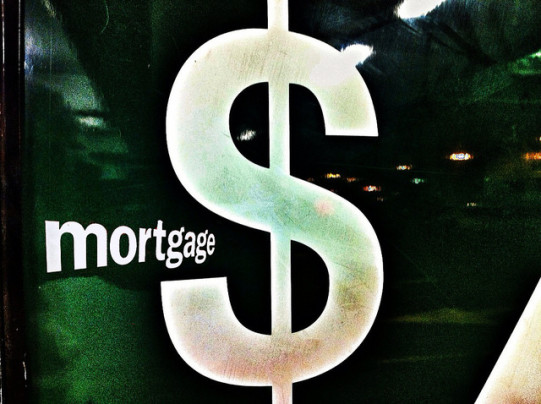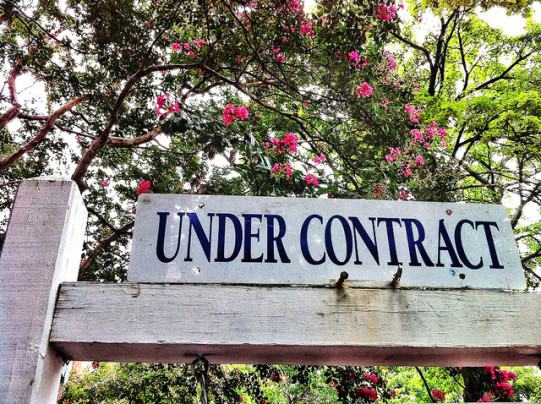According to Fannie Mae’s December 2015 Home Purchase Sentiment Index, Americans were feeling more confident about their jobs, income, and outlook as last year came to a close. In fact, four of the six index components saw improvement from the month before, including the percentage of respondents who said it is a good time to sell a house, those who feel home prices will continue to rise, the number of participants who aren’t concerned about losing their job, and those who said their income has increased significantly over the past year. Doug Duncan, Fannie Mae’s chief economist, said the results could mean more prospective home buyers will be shopping for a house this year. “Consumers ended the year on an improved note with regard to their income, job security, and overall economic outlook,” Duncan said. “Brightening economic prospects, if sustained, should stimulate demand for homeownership. However, continuing upward pressure on rental prices and constrained housing supply, particularly for starter homes, may mean prospective first-time home buyers could face affordability constraints.” Despite increasing affordability concerns, the residential real estate market had a strong 2015 and, with a positive economic outlook and increased demand, this year may see additional improvement. More here.
Archive for January 2016
Mortgage Demand Falls After Loan Rush
Prior to the Federal Reserve’s interest rate announcement in mid-December, there was a sharp increase in home loan demand. Expectations that mortgage rates would soon move higher caused many to try and lock in a low rate before any increases occurred. But, because so many rushed to beat a possible rate hike, the two weeks following the Fed’s announcement saw a dramatic drop off in demand. “Refinance application volume increased for three weeks in a row in early December ahead of the Fed’s announcement that it was raising the federal funds rate,” Lynn Fisher, vice president of research and economics for the Mortgage Bankers Association, told CNBC. “During the two weeks following their announcement, holiday-adjusted refinance activity dropped substantially, even though the 30-year fixed rate increased by only 4 basis points over the same period.” According to the MBA’s Weekly Mortgage Applications Survey, refinance activity – which is generally more sensitive to rate fluctuations – did drop sharply, falling 37 percent from two weeks earlier. Purchase demand was also down, though it still remains 22 percent higher than the same week one year ago. The MBA’s weekly survey has been conducted since 1990 and covers 75 percent of all U.S. retail residential mortgage applications. More here.
Home Buyers Put Trust In Real Estate Agents
Prospective home buyers face a lot of choices during the buying process. Unfortunately, a lot of them have nothing to do with what kind of house they’d like to live in, how big of a kitchen they want, or how many bedrooms they’ll need. That’s because, for most of us, buying a house requires the help of a number of services and professionals that we aren’t necessarily that familiar with or used to shopping for – including a home inspector, mortgage lender, real estate agent, appraiser, etc. Understanding what each does and who to trust can cause confusion for many buyers. In fact, a recent survey from the National Association of Realtors, found that nearly 30 percent of future home buyers do not feel knowledgeable about real-estate transactions, while another 22 percent said they don’t understand the role played by various service providers. In other words, a lot of buyers know they’d like to own a house but aren’t quite sure how to proceed. According to the survey, most of these home shoppers will lean on a real-estate agent for advice, guidance, and help finding affiliated services – with large majorities of respondents expressing a preference for working with professionals already affiliated with their agent’s firm. Only family and friends ranked as highly as a source of real estate information. More here.
Optimism High Despite Affordability Concerns
Since the Fed’s decision to increase interest rates, there has been a lot of discussion about whether or not tighter monetary policy will halt the housing market’s progress. According to Freddie Mac’s chief economist, Len Kiefer, there is no need for worry. “We do expect home buyer affordability to decrease in the coming year, but we don’t expect tighter monetary policy to generate a spike in longer-term interest rates in the foreseeable future,” Kiefer says. “The Fed has committed publicly to measured increases in short-term rates. While mortgage rates will rise modestly, they will still remain at historically low levels. Combined with stronger job and income growth, the net result may be strong growth in household formation, construction, and home sales.” Among the reasons for Kiefer’s optimism, Freddie Mac’s recently released Multi-Indicator Market Index ranks high. That’s because the latest index shows the best year-over-year improvement since July 2014 and an increasing number of states and metro areas whose local housing markets have entered their long-term stable range. That means more markets where home purchase applications and home values are headed upward and mortgage delinquencies are falling. Overall, though affordability conditions may decline this year, the strength of the economy and housing market should help lessen the impact for the average American home buyer. More here.
Pending Home Sales Slow In November
The National Association of Realtors’ Pending Home Sales Index measures the number of contracts to buy homes that are signed during the month. Because it tracks signings, and not closings, it is considered a good indicator of future existing-home sales. In November, contract signings slowed from the month before but remained 2.7 percent above year-before levels. It was the 15th consecutive month pending home sales rose year-over-year. Still, the monthly trend shows sales beginning to slow. Lawrence Yun, NAR’s chief economist, says pending sales have been slowing ever since they hit a nine-year high in May. “Home prices rising too sharply in several markets, mixed signs of an economy losing momentum and waning supply levels have acted as headwinds in recent months despite low mortgage rates and solid job gains,” Yun said. “While feedback from Realtors continues to suggest healthy levels of buyer interest, available listings that are move-in ready and in affordable price ranges remain hard to come by for many would-be buyers.” Still, despite falling 0.9 percent in November, pending sales’ estimates from October were revised upward and regional results show contract signings were actually up in the Midwest and South. More here.





